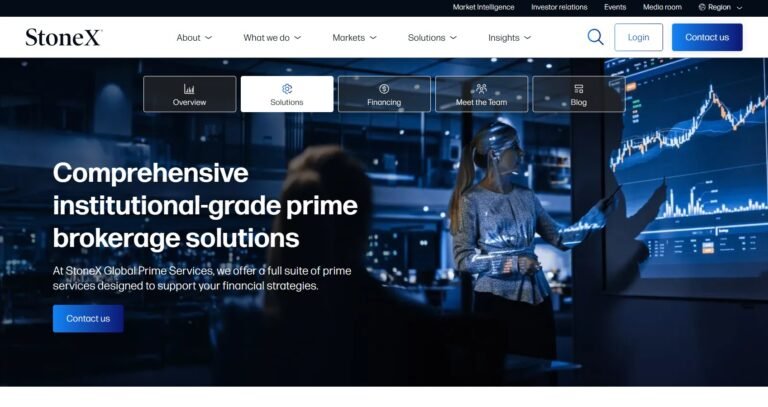Table of Contents
Introduction to Stone X
This detailed Stone X review explores the broker’s claimed offerings, legal standing, and overall trustworthiness. Stone X positions itself as a global financial services firm providing access to forex, commodities, and institutional trading solutions. The company claims to operate from the United States while offering services to a wide range of clients worldwide.
For traders who have experienced suspicious activities or are considering opening an account, the question remains: is Stone X a scam or a legitimate broker? This Stone X scam review uncovers all the warning signs you need to know before depositing any funds.
Stone X: Regulation & Legal Status
Stone X is associated with StoneX Group Inc., which is a publicly listed company on NASDAQ and regulated by top-tier authorities such as the U.S. Commodity Futures Trading Commission (CFTC) and the National Futures Association (NFA). However, some users have reported confusion due to different entities using similar branding, leading to potential scams mimicking the legitimate firm.
Unregulated entities falsely claiming association with Stone X pose serious risks, including no investor protection and no legal recourse in case of disputes. Such deceptive practices are common among fraudulent brokers.
Before committing funds, learn how to spot a scam broker before it’s too late. While Stone X’s regulated entity appears legitimate, any clone sites or unlicensed operations using its name raise serious questions about whether Stone X is a scam.
Trading Conditions & Platform Analysis of Stone X
Stone X offers a range of institutional-grade trading platforms and services, but details for retail users, such as minimum deposits, leverage, and spreads, are not always clearly outlined. This lack of transparency can make it challenging for smaller investors to assess the true cost of trading with the broker.
Although the broker provides access to advanced trading platforms, it’s important to remember that having industry-standard platforms like MT4 or MT5 doesn’t automatically guarantee credibility. Additionally, the absence of detailed information on liquidity providers and order execution raises concerns for retail traders.
Before committing, check what to check before signing up with a trading platform. These gaps make it harder to dismiss the idea that Stone X might be a fraud, especially if you’re dealing with an unverified branch or clone entity.
Reputation & User Reviews About Stone X
Reviews for Stone X vary significantly across platforms like TrustPilot, with many users reporting satisfactory experiences on the regulated platform, while others complain of difficulties when interacting with entities misusing the Stone X brand.
Negative feedback often includes issues with withdrawals, slow customer support, and challenges verifying account legitimacy. It’s crucial to ensure you’re dealing with the actual regulated company, as clone sites tend to solicit deposits and then block withdrawals.
How to Test Whether Stone X Is a Scam
To determine whether you’re dealing with the real Stone X or a scam, follow these steps:
Verify regulation: Cross-check licenses with the SEC, CFTC, or NFA. Legitimate brokers will have clear registration details.
Look for red flags: Beware of websites with vague license information or contact details that don’t match the official Stone X entity.
Check user reviews: Use forums like Forex Peace Army and TrustPilot to see consistent patterns in user complaints.
Evaluate the platform: A poorly designed or low-quality platform can indicate a fraudulent clone site.
Review withdrawal policies: Avoid entities that restrict withdrawals or require crypto-only deposits.
Watch for false promises: Be cautious of any claims guaranteeing profits or eliminating trading risks.
Test a demo account: A legitimate broker should allow you to explore their services without immediate financial commitment.
Final Verdict & Alternatives
While Stone X as a regulated entity is legitimate, the existence of potential clone sites using its branding is concerning. If you’re unsure about which entity you’re dealing with, it’s best to avoid depositing any funds until you confirm its regulatory status.
Safer alternatives include highly regulated brokers like IG, Pepperstone, or Saxo Bank, which provide full transparency and robust client protections. To report suspicious activity or potential scams, visit the FTC fraud reporting portal.


